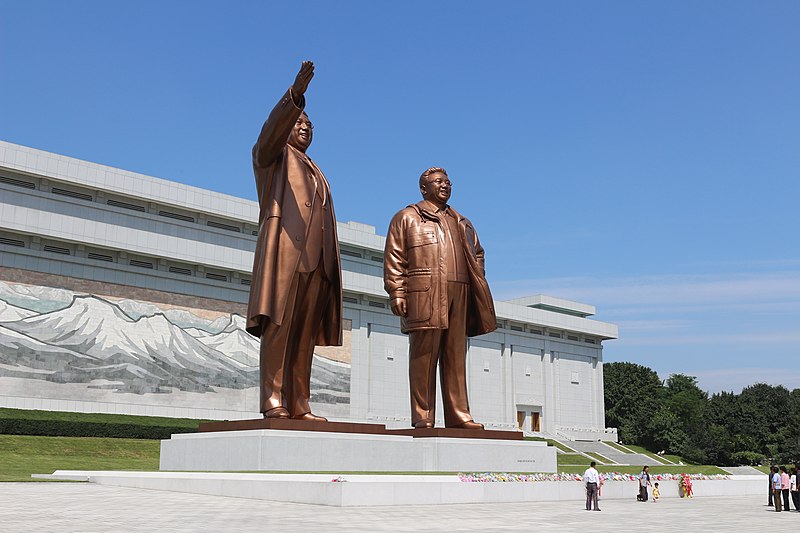Countries and international organizations have offered to assist North Korea as it deals with an outbreak of COVID-19 since it was first reported a few weeks ago. Despite offers to assist in combating the coronavirus, Pyongyang appears to continue rejecting help from organizations and other countries, including South Korea.
South Korean officials said that Pyongyang did not respond to their offers to aid the nation in its outbreak of COVID-19, as well as the offers from Washington. The World Health Organization has also said that Pyongyang did not respond to their request for information even as the organization expressed concerns about the risk of the further spread of the virus in the isolated nation.
While there are no responses from Pyongyang, there appear to be signs that North Korea is instead turning to its allies Russia and China for help, but this has yet to be confirmed.
North Korea became one of the first countries to close off its borders in January of 2020 upon news of the COVID-19 outbreak. Pyongyang has also repeatedly refused offers of COVID-19 vaccines from the international community, including the UN–led COVAX.
The number of people in North Korea who are reportedly having symptoms of “fever” went past 2.2 million cases. It has yet to be seen how many of those have tested positive for COVID-19. To note, North Korea is notorious for concealing internal crises from the international community.
Former UK ambassador to North Korea Alastair Morgan told Al Jazeera that Pyongyang’s refusal to accept help from the international community may be out of fears that they could be seen as being beholden to other countries.
Aside from the pandemic, North Korea’s continuous weapons tests have caused tensions to flare up in the Korean peninsula. Over the weekend, South Korean President Yoon Suk-yeol and US President Joe Biden announced an agreement to expand the scope and the scale of their annual joint military exercises.
The two leaders announced the agreement in a joint statement, also detailing other measures such as a pledge to deploy strategic US assets like fighter jets, bombs, and missiles to South Korea.



 European Allies Deploy Air Defenses to Cyprus After Drone Attack on RAF Akrotiri Base
European Allies Deploy Air Defenses to Cyprus After Drone Attack on RAF Akrotiri Base  U.S. Senate Rejects War Powers Resolution Aimed at Halting Trump’s Military Campaign Against Iran
U.S. Senate Rejects War Powers Resolution Aimed at Halting Trump’s Military Campaign Against Iran  U.S. Officials Review Tencent’s Stakes in Epic Games, Riot Games Over Security Concerns
U.S. Officials Review Tencent’s Stakes in Epic Games, Riot Games Over Security Concerns  Trump Signals Support for John Cornyn in Texas GOP Senate Primary as Party Seeks to Avoid Runoff
Trump Signals Support for John Cornyn in Texas GOP Senate Primary as Party Seeks to Avoid Runoff  Defense Contractors Move to Drop Anthropic AI After Trump Administration Ban
Defense Contractors Move to Drop Anthropic AI After Trump Administration Ban  Rubio, Saudi Foreign Minister Discuss Iran Threats and U.S. Embassy Riyadh Attack
Rubio, Saudi Foreign Minister Discuss Iran Threats and U.S. Embassy Riyadh Attack  Australia and Canada Strengthen Critical Minerals Partnership Through New G7 Alliance Agreements
Australia and Canada Strengthen Critical Minerals Partnership Through New G7 Alliance Agreements  Brazil Senate Approves Mercosur–EU Trade Agreement After Decades of Negotiations
Brazil Senate Approves Mercosur–EU Trade Agreement After Decades of Negotiations  Suspected Iranian Drone Hits CIA Station at U.S. Embassy in Riyadh Amid Rising Middle East Tensions
Suspected Iranian Drone Hits CIA Station at U.S. Embassy in Riyadh Amid Rising Middle East Tensions  Spain Denies Deal With U.S. Military After Trump Threatens Trade Cutoff
Spain Denies Deal With U.S. Military After Trump Threatens Trade Cutoff  Trump Defends Extended U.S.-Israel Military Campaign Against Iran
Trump Defends Extended U.S.-Israel Military Campaign Against Iran  Santander’s $12.2B Webster Financial Deal Faces Uncertainty Amid U.S.–Spain Trade Tensions
Santander’s $12.2B Webster Financial Deal Faces Uncertainty Amid U.S.–Spain Trade Tensions  Israel-Hezbollah Escalation Deepens Lebanon’s Role in Middle East Conflict
Israel-Hezbollah Escalation Deepens Lebanon’s Role in Middle East Conflict  U.S. Begins Charter Evacuations as Iran Conflict Disrupts Middle East Air Travel
U.S. Begins Charter Evacuations as Iran Conflict Disrupts Middle East Air Travel  Young Trump Voters Divided After U.S. Strike on Iran and Death of Ayatollah Khamenei
Young Trump Voters Divided After U.S. Strike on Iran and Death of Ayatollah Khamenei  Trump Praises Delcy Rodríguez as Venezuela Oil Exports Resume
Trump Praises Delcy Rodríguez as Venezuela Oil Exports Resume  Senators Urge Better Coordination After Texas Counter-Drone Incidents Disrupt Airspace
Senators Urge Better Coordination After Texas Counter-Drone Incidents Disrupt Airspace 





























